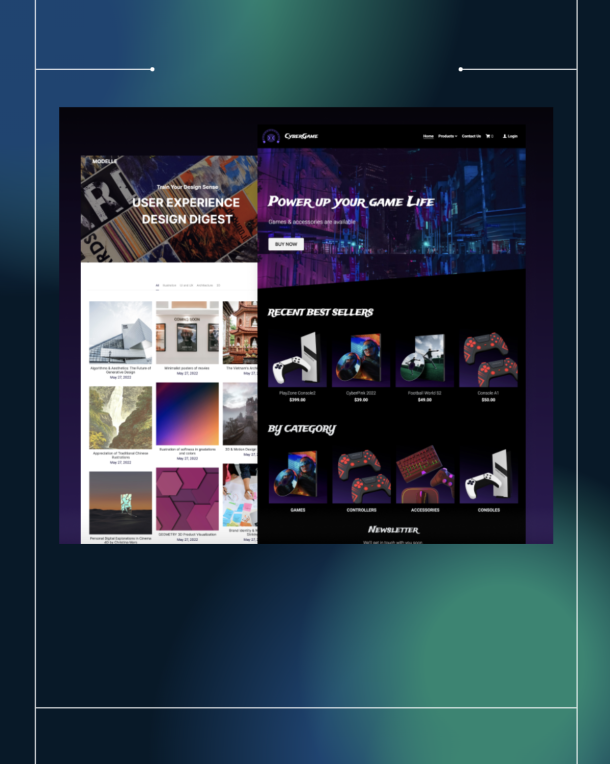Shopify for eCommerce is the best thing that ever happened to eCommerce. It truly takes away the technical headaches and helps you focus on marketing, growing, and profiting from your business.
Focus on that, and eCommerce support, and you are solid.
TL; DR: When starting a business, just sign up for Shopify and get started. Put the effort into marketing and not on the “platform”. For e-commerce, Shopify is everything you need. Period.
I’ve seen way too many people waste time trying to think about the right platform for their e-commerce businesses, and that’s a criminal waste of time right there.
The success of your e-commerce business “does not” depend on the platform you pick. It really depends on a myriad of factors that’d pertain to any business, really (online or offline).
When you start an e-commerce business, you’d first validate your idea by building a landing page and setting up a Google Ads or Facebook Ads campaign. By doing that, you have the opportunity to validate your idea, as suggested by Dan Norris, the author of 7-Day Startup.
While validating your idea, you’d also think of:
- Your customer persona
- The exact market you are trying to target to.
- Your unique selling proposition
- How you intend to execute business strategy — including marketing, operations, bankrolling your business, and the processes behind your business.
The best ways to get started with e-commerce is to just snuck it up and go with Shopify
Read:
Shopify Review: Stop Futzing Around & Switch to Shopify Now
Shopify Vs WordPress: A Comparision Of Behemoths
Shopify Vs Wix: It’s Not Even a Comparo
Drip & Shopify Integration: Run a Smart e-commerce Business
Why Use Shopify For eCommerce?
As a small business owner, you don’t have the time (you might think you do, but you really don’t) to deal with technology, infrastructure, compliance, website management (beyond adding products, product descriptions, and other content management), managing servers, hosting, and maintenance.
With every other e-commerce platform out there, you’d end up spending tons of time just managing your e-commerce store (from a technical standpoint).
Not with Shopify.
You’d honestly not want to:
- Worry if your hosting is reliable enough
- Deal with the dirty part of having to change web hosts (if and when your host can’t keep up with the demand)
- Think about whether or not your e-commerce store is going to keep up with the inbound traffic.
- Get your hands dirty with continuous upgrades, maintenance, backups, and anti-malware protection or hacking protection that you’ll normally need with WordPress.
When you use Shopify, you’ll get up and running with your e-commerce site in a matter of minutes (unless you want a highly-customized Shopify store).
Just like WordPress, Shopify enjoys numerous integrations with other apps, SaaS tools, and marketing tools that you are already used to.
For instance,
- Connect your Shopify Store to WordPress (if you just have a blog but want to add e-commerce functionality)
- Connect your Shopify store with email marketing service providers such as Mailchimp, Drip, and Campaign Monitor.
- Integrate the Facebook Pixel with your Shopify Store
- Connect both Facebook and Shopify to enable a shopping catalog within Facebook “assets” to allow you to run Facebook Dynamic Ads.
- Integrate Shopify with your CRM.
- If something doesn’t connect directly with Shopify, Use Zapier.
Your actual energy, time, resources, and effort will be better spent in doing what you need to do to get actual sales, such as:
- Doing blogging regularly to start getting inbound traffic.
- Amplify your blogging content (and other forms of content you create) on social media.
- Do Youtube Videos
- Create and distribute your podcasts
- Launch smart email marketing campaigns (Including Shopping cart abandonment campaigns, email retargeting campaigns, and more).
Digital marketing might seem like it’s simple, but it’s really ongoing, continuous, and hard work when it comes to making these efforts contribute to a positive ROI.
That’s why, I believe that every keystroke, every minute, and every ounce of your energy should go into Inbound marketing and your paid advertising efforts.
Wasting any time you have on deciding on platforms, comparing WordPress with Shopify, or over-customizing your Shopify Theme is just not done.
How do you intend to use Shopify for ecommerce? Start with Shopify for free and tell me what you think.

